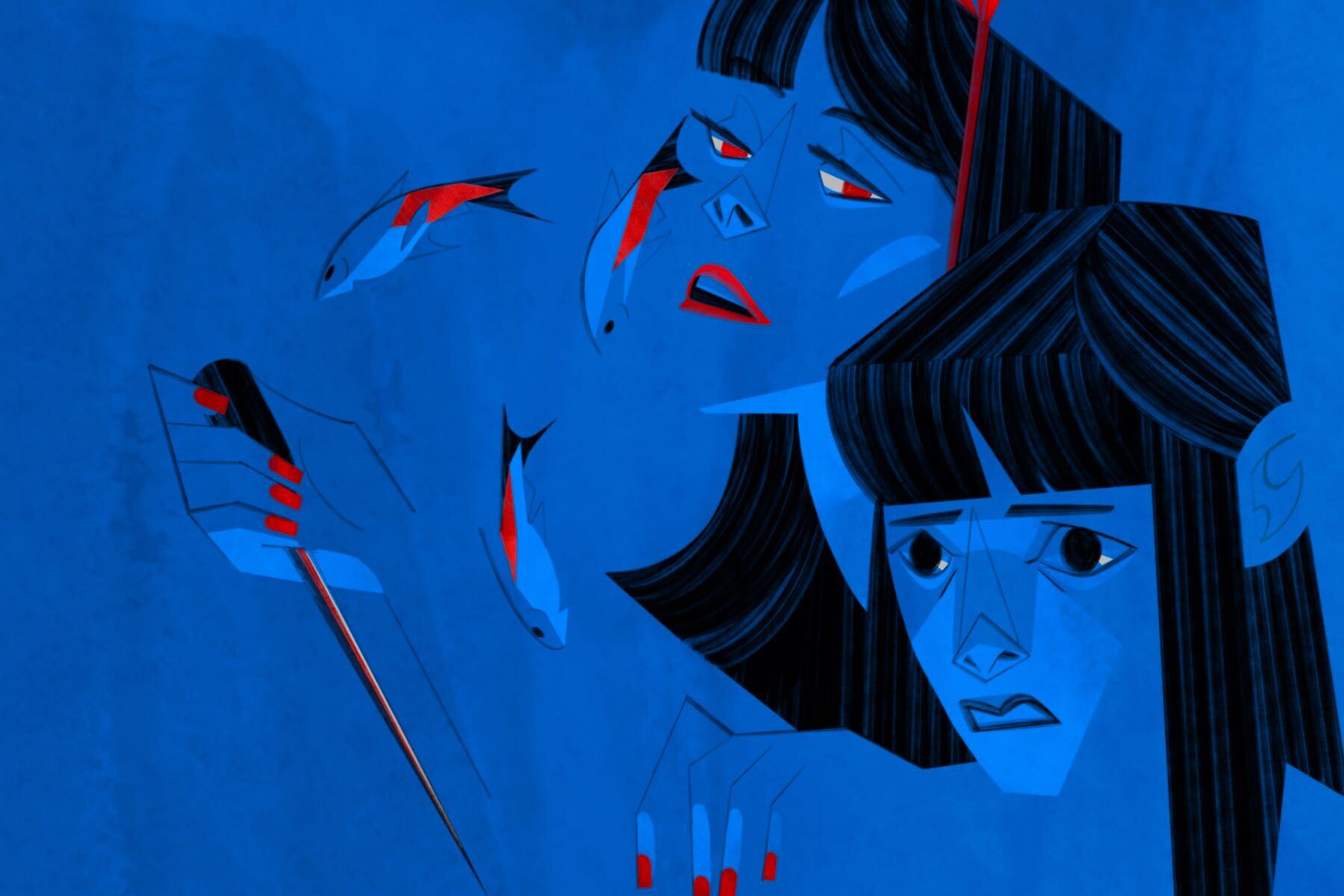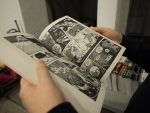“Perfect Blue,” directed by the late Satoshi Kon, is a movie that’s aged like fine wine. Its story follows the life of Mima, a member of the J-pop group CHAM who decides to leave the band in order to pursue a serious acting career.
Although her fans are disappointed, there are some who take it more to heart than others, and Mima begins to lose her grip on reality as she simultaneously deals with stalking and trying to differentiate between her real self, her show business self, and her online avatar.
The way the film deals with its themes — fandom culture, the relationship between humanity and the internet, identity, and voyeurism — is enough to shake any viewer to their core. Even though the film is animated, it’s scarily realistic in its portrayal of these issues. It becomes even more hard-hitting once you realize it was released in 1997; in spite of the passage of time, “Perfect Blue” is still an eerily modern piece.
Mima’s yearning to transition from pop idol to actress is something that is often mirrored in the real world. She wants to break free from the “good girl” image that is synonymous with being an icon, which is why she eventually agrees to do a graphic rape scene at a strip club for “Double Bind,” the crime drama she’s filming, because being naked is the only way she feels she can be seen as an adult. Doesn’t this sound familiar?
Time and time again, female stars, famous for their squeaky clean careers and sweetheart personas, have gone the extra mile to be taken “seriously” (think: Miley Cyrus’ infamous performance with Robin Thicke at the 2013 VMA, or Britney Spears’ “Slave 4 U”). The only problem is that these women aren’t taken seriously after. They’re seen as dirty, called every derogatory name in the book and are no longer pegged as role models.
Idols, especially female idols, are expected to maintain this virginal image. They’re innocent and sweet, but still sex objects, there to cater to the male gaze rather than to honestly embrace their sexuality.
They’re seductive enough to keep their male fans, but not so seductive that they’re considered slutty and drive them away. You can see hints of this in CHAM’s outfits in the opening scene, as they perform in front of their fanbase — a crowd full of men.
The girls are the epitome of cuteness in shades of pink but there’s this still this playful innocence that borders on coyness. Maybe it’s the length of their dresses, or the thigh high socks, or the bow in Mima’s hair, that makes her seem young and pure. There’s so much that can be inferred that if you blink, you could miss the true intent.
Superstar Mima — the pure, undefiled, sickeningly sweet pop star — was fans’ perception of who the “real” Mima was. So, when she switches careers and destroys that by becoming a woman who’s most popular for acting in a rape scene and posing naked on the covers of magazines, they don’t take it so lightly.
It is here that “Perfect Blue” nails its portrayal of the sense of ownership fanbases feel they have over their favorite celebrity. They dissect her acting and roll their eyes at almost every single move she makes. They feel like they know her, so they feel like they have a right to scrutinize her. This possessiveness toward Mima is made worse thanks to a cyberstalker.
Mima, after being instructed on how to use a computer for the very first time, ends up discovering “Mima’s Room” — a website full of diary entries, written as if they were by Mima herself. Each entry describes her life right down to the minute details, like what brand of milk she bought at the supermarket and which foot she used first to step out of the train.
Kon was able to recognize the dangerous possibilities of the internet before internet culture was even a thing. In the ‘90s, the internet was optimistically imagined to be this realm where communication could have more freedom, where people could connect like they never had before. Kon was one of the few visionaries who was able to prophesy how that might not always be a good thing, how the internet can allow you to take on any persona with no one able to do a thing about it.
The stalker running Mima’s Room, who goes by Me-Mania, steals her already silenced voice. Mima is someone who is constantly overpowered. She’s talked over by her managers, told what to do by directors and photographers and gossiped about by fans who think they know what’s best for her.
Scenes where she is even physically overpowered are commonplace in the film. She’s someone who just does whatever she’s told, who doesn’t have a true grip on who she is or what she wants. So, when she’s confronted with this online version of herself, a person who’s more like Mima than Mima herself, her mental health takes a turn for the worse.
Scenes bleed into one another as she loses her grip on reality. She can no longer tell the difference between the set of “Double Bind,” her own home and everyday life in Tokyo. She doesn’t know if she’s acting or just being herself, and becomes haunted by the image of her pop idol self. She even begins relying on Mima’s Room to remember what she did that day.
Everyone today, in some way, can relate to Mima’s struggle in “Perfect Blue.” Although the majority of people’s situations are most likely not as extreme as hers, the internet has turned the average person into a celebrity.
There is this feeling of constantly being cannibalized by others any time you log onto a social media platform. Your life is on display for others to judge and analyze. Things can even get tricky when the line begins to blur between your internet persona and the person you are when you turn the device off.
This can especially be true for the employees of one of this generation’s most contemporary career paths, social media influencing, which allows people to make money off the masks they use in online spaces.
It’s undeniable that “Perfect Blue” is a perfect horror film. Rather than relying on gore and jump-scares, it taps deep into a timeless fear: losing your sense of self. Although the movie was originally made to critique the J-pop industry, something so niche at the time, it now applies on a global level. There is no doubt that, as the world progresses, the film will continue to haunt its viewers.

















